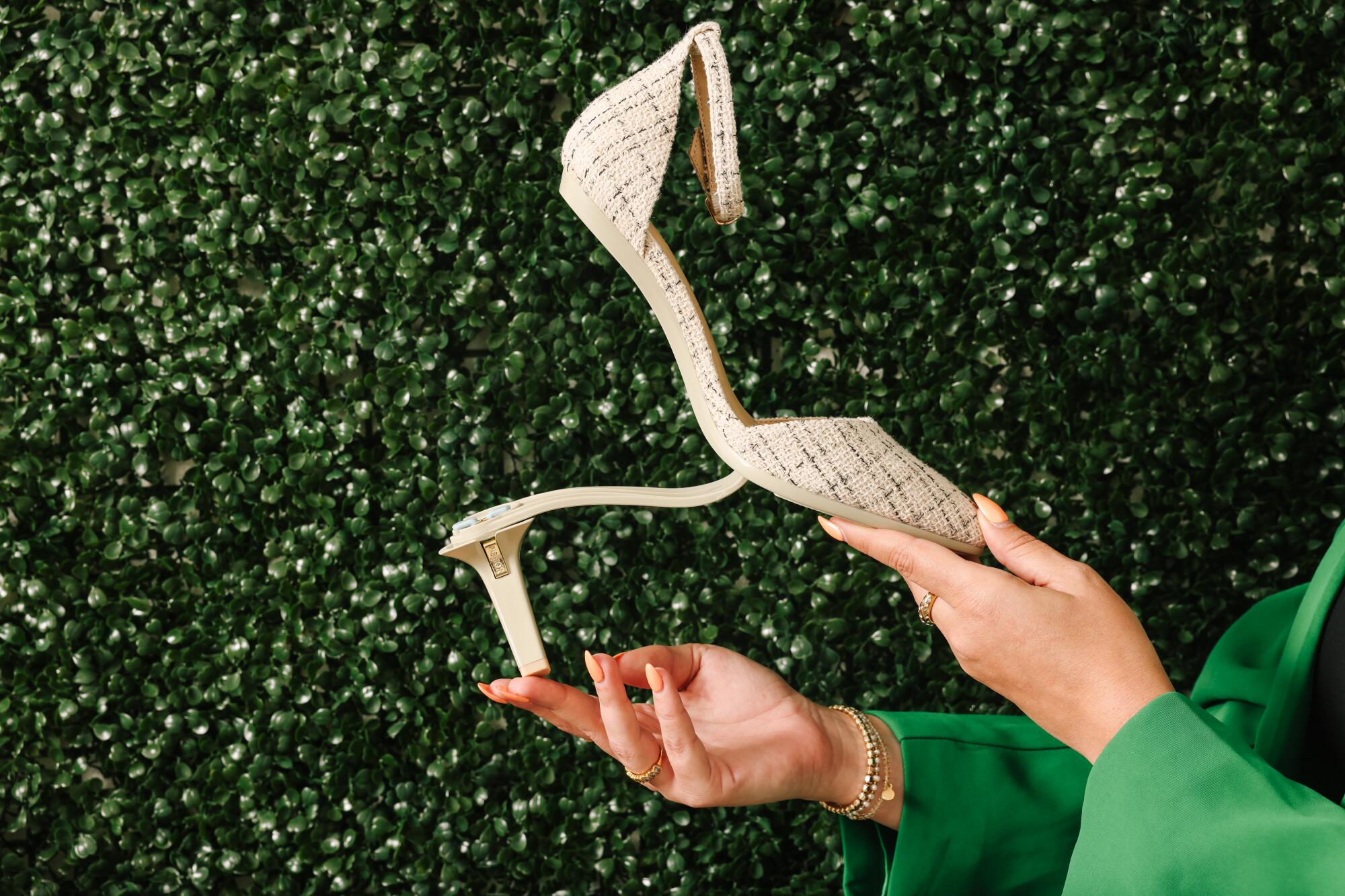
- Share via
A sophomore at Cal Poly San Luis Obispo took off her shoes at a spring sorority formal to bust a move on the dance floor. Then another girl stepped all the way through the sophomore’s toe with a high heel.
Ouch!
The sophomore was Haley Pavone, now the chief executive of Pashion Footwear, a multimillion-dollar shoe business that turns heels to flats and back again. And that painful incident eight years ago was her “light bulb moment.”
“In a lecture earlier that week, my professor had literally said the best products solve a pain point, because people will spend money to not be in pain,” Pavone said in an interview with The Times. “I’m like, yeah, I would have spent money to not feel like this.”
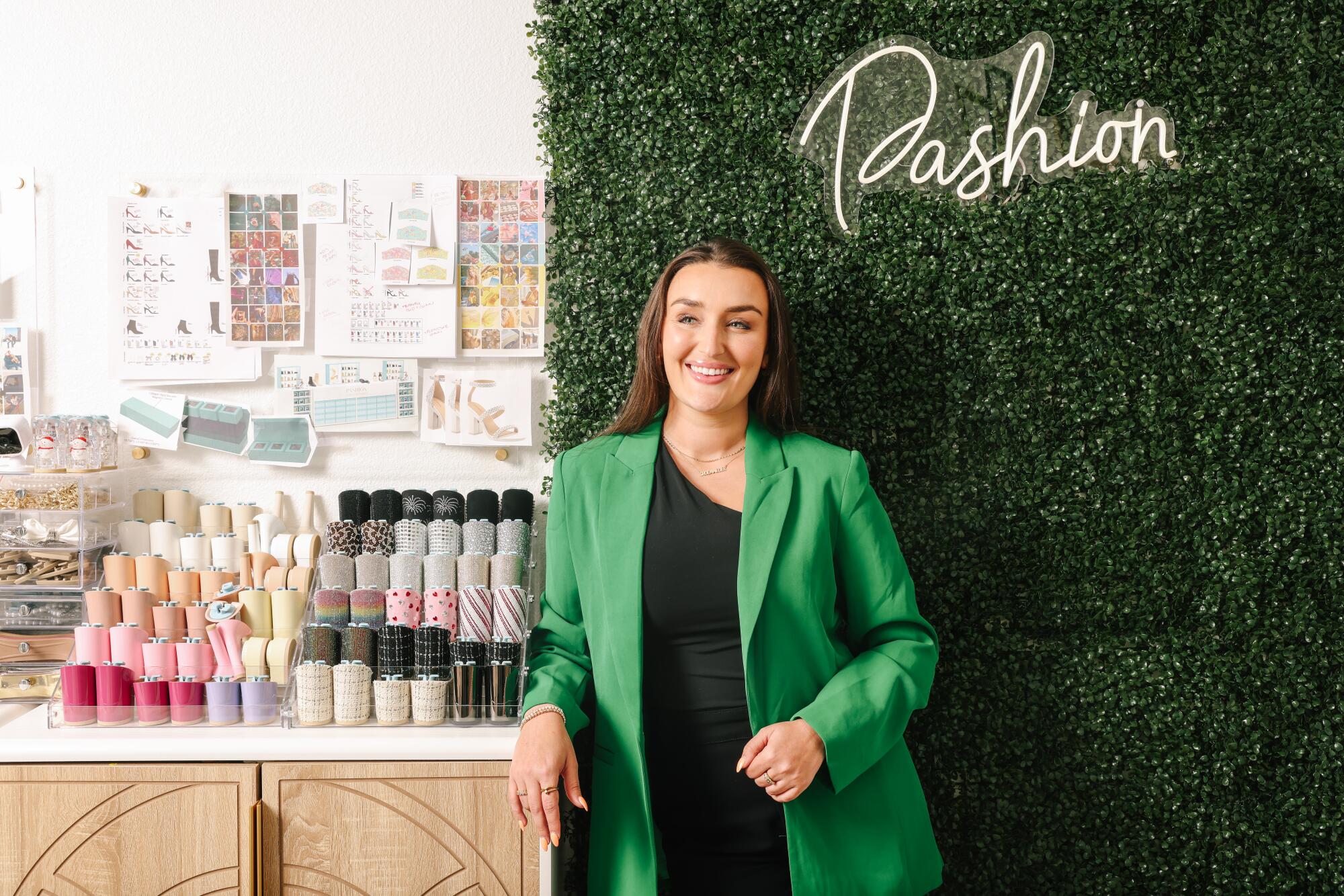
Pavone said she spent weeks as a 20-year-old entrepreneurship major doing research on the gap she saw between fashion and function in the market for women’s high heels. Her studies led her to reject the idea that beauty is inextricably tied to pain.
It’s no secret that heels are “violently uncomfortable and inconvenient,” she said. Rather than shoe manufacturers deciding to make a better product, Pavone said, “they say, ‘We know this is hurting you — and that’s a ‘you’ problem.’”
So she made it her problem.
Today, the 28-year-old Pavone runs a shoe business with 11 employees and $4 million in 2023 sales out of her San Luis Obispo apartment. Her journey, which wound through fundraising competitions at Cal Poly, the reality TV show “Shark Tank” and TikTok, started in the considerably smaller unit where she lived as a college sophomore.
That’s where she sawed apart a pair of her high heels to see what they were made of. The dissection eventually led her to conclude that if you removed both the heel and the hard inner shank of a heeled shoe, it could stand flat on the ground.
Pavone said she studied patents for footwear whose heels would collapse into themselves to make a flatter shoe. None had a removable hard shank. So she made and patented one, the Stelo, in 2018.
Haley Pavone’s revolutionary design for convertible women’s shoes. (Dania Maxwell / Los Angeles Times)
Pavone raised a bit of money by winning competitions at her school with mock-ups of her convertible shoe. But when she pitched to real investors in a third competition, she knew she needed something better.
The shoe she came up with looked like a traditional high heel, and she wore it during her 10-minute pitch — even though it was a 3-D-printed version that would hold up only for the length of the presentation.
“Before I ask you for money, I’m going to get more comfortable,” she recalls saying at the end as she lifted her foot, removed the heel, and stepped back down in a flat. In a room where no one expected her to have a working product, she “got a standing ovation,” she said. “Everyone was thrilled, and we raised $450,000.”
With the money, she was able to hire more industry professionals to move from a 3-D-printed prototype to a real shoe, which her company had a Chinese factory manufacture. But Pashion, which launched in 2019, soon confronted high tariffs on goods made in China, as well as the COVID-19 pandemic.
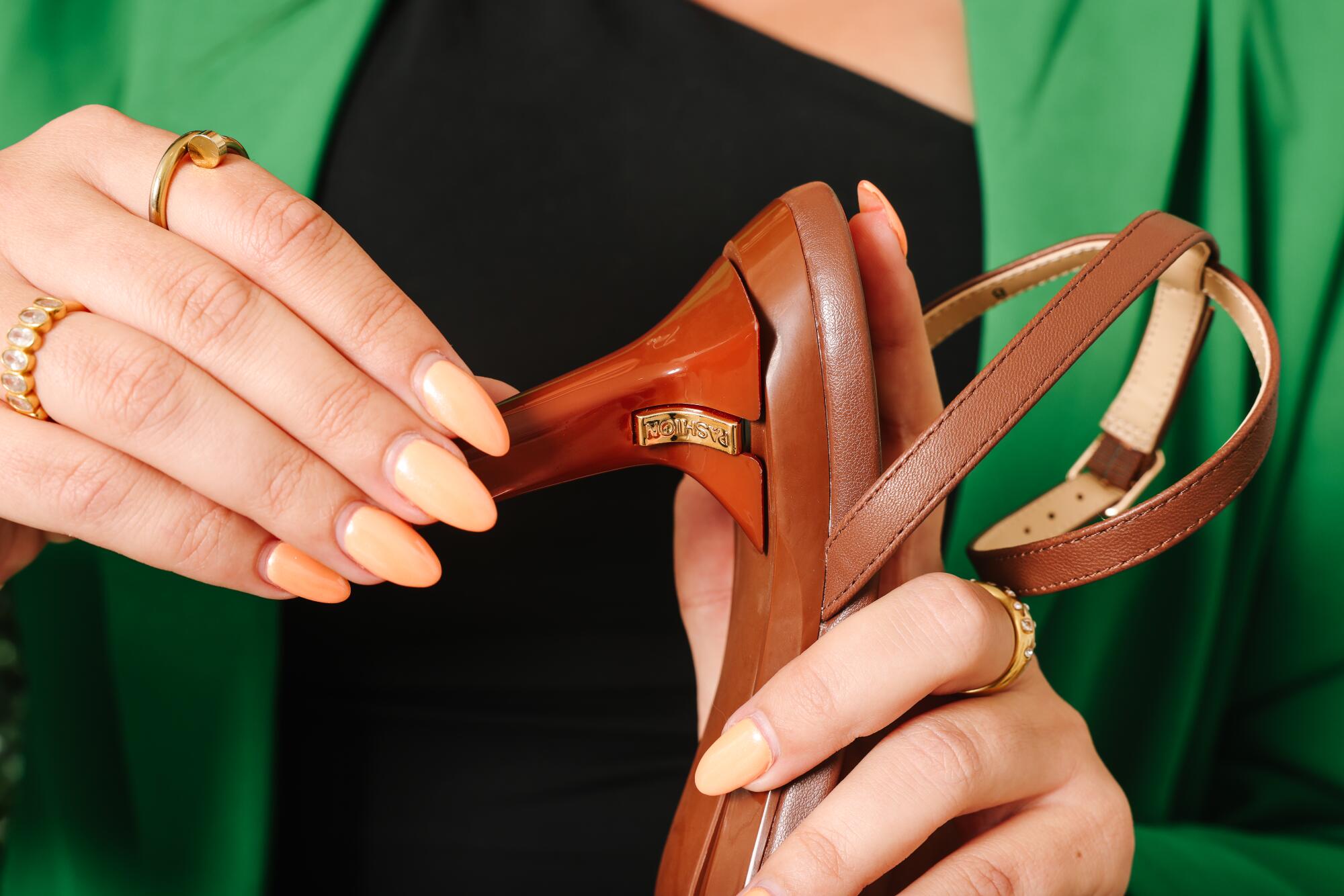
Raising capital was no walk in the park either, given what Pavone called her three strikes — she was young, a woman and new to the footwear industry.
Pavone recalled the time an investor wanted to have a meeting at a bar, but she couldn’t get in because she wasn’t 21. Her age sent a not-so-reassuring message: “I can’t legally buy margaritas with you, but I should handle your money.”
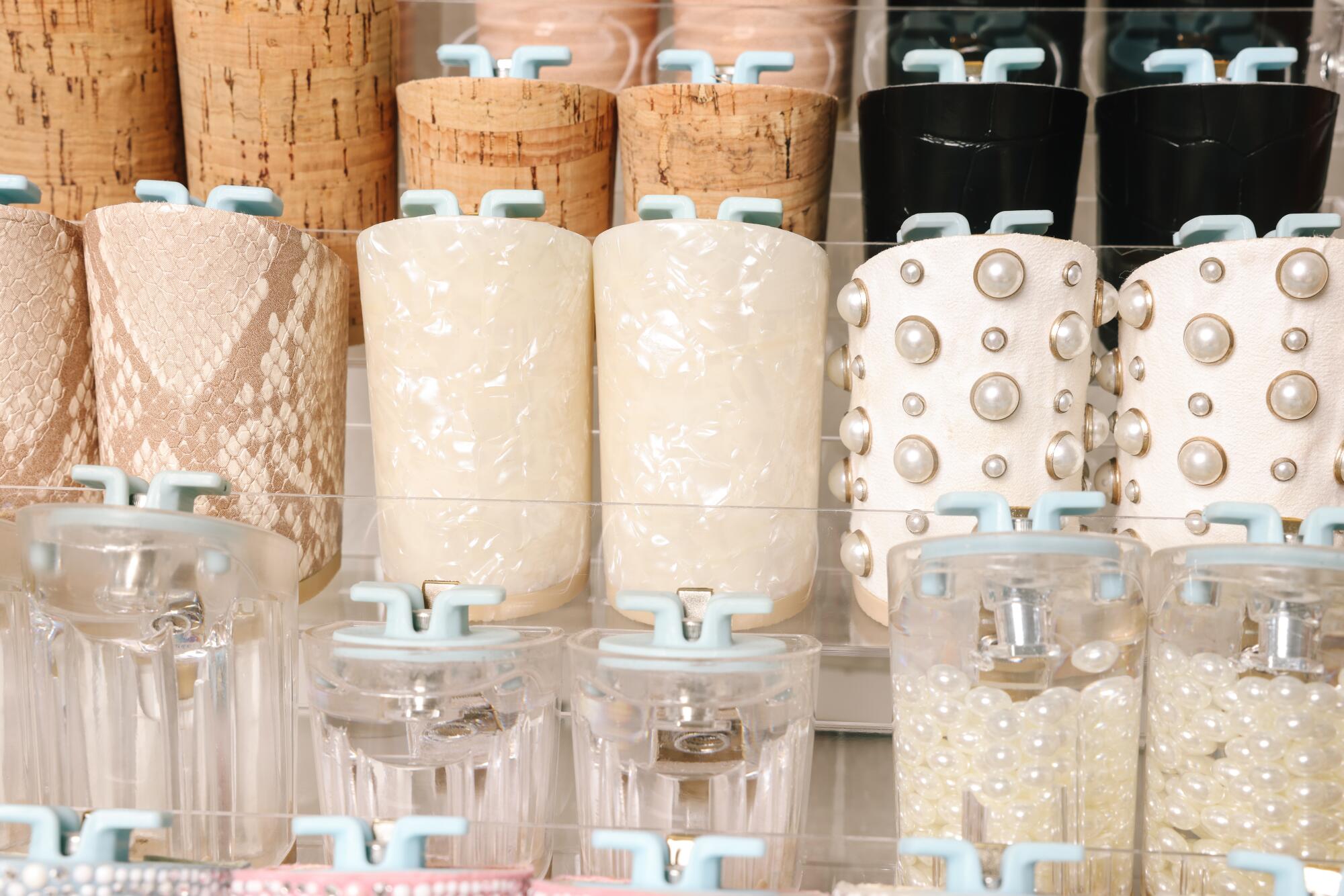
The search for investors took her to the television show “Shark Tank,” where she pitched Pashion Footwear to four high-powered potential backers in 2020. She walked away without a deal despite an offer from Mr. Wonderful, Kevin O’Leary.
“We actually ended up having the best outcome we possibly could have, because going on the show was incredible exposure,” Pavone said.
After the episode went live in 2021, she said, the business grew by 450%, and other investors emerged with better terms than O’Leary’s offer. But the first go at a brand-new product, Pavone said, wasn’t perfect: “When you’re doing something that’s never been done before, you simply just don’t know what you don’t know, right?”
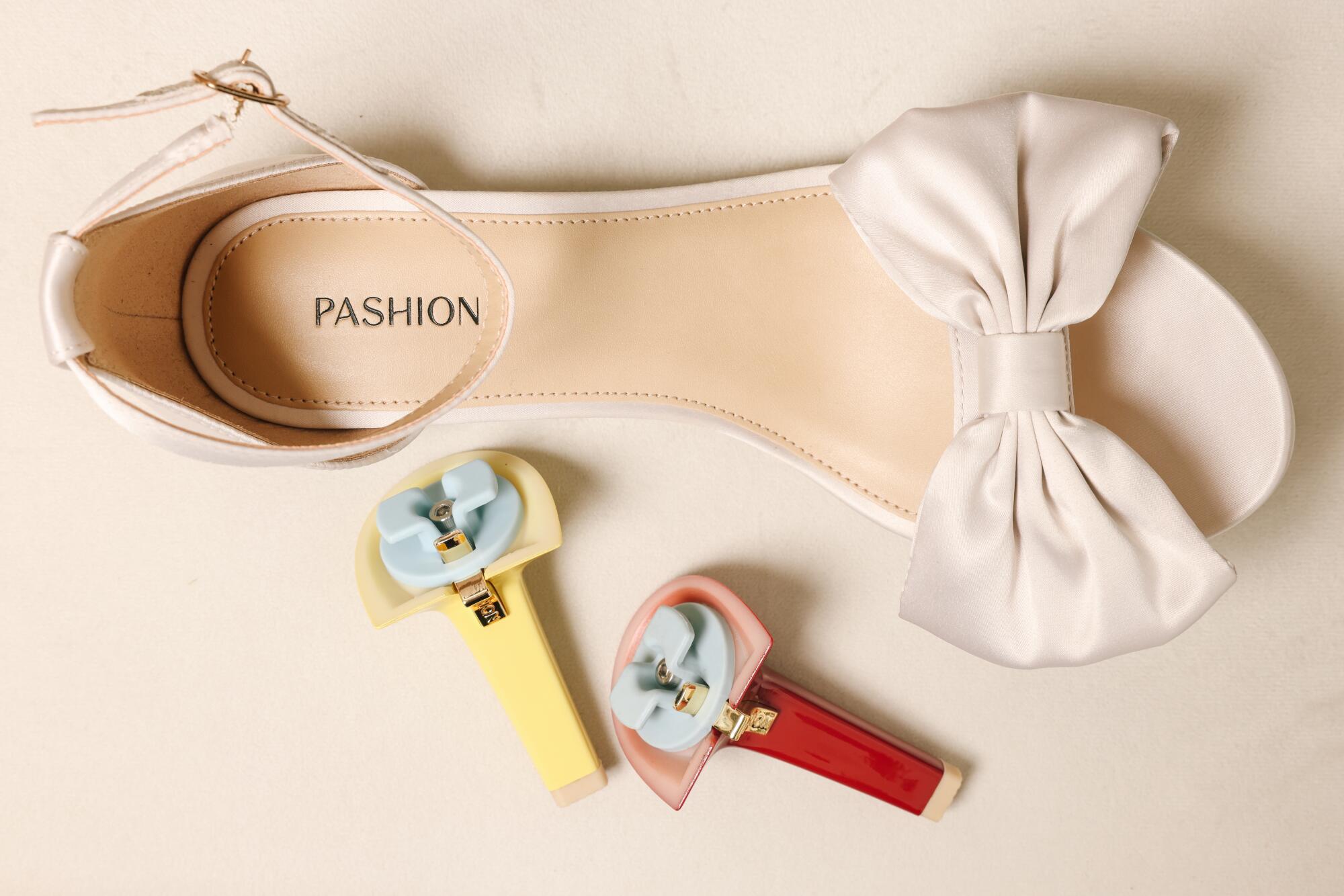
The high rate of her shoes being returned or exchanged that she mentioned in the “Shark Tank” episode — 24% — was because the 1.0 version of the Pashion shoe was prone to sizing issues, Pavone said. Around 25% to 30% of the heels made were too big to fit into the shoe’s existing mechanism.
“It was unbelievably expensive, because we still had to pay for them, and we still used the materials,” she said.
Style should be unapologetic and unpredictable. Take some cues from the L.A.-based wardrobe stylist from Highland Park.
Knowing they had to pivot to a consistent product, Pavone moved into research and development, building a 2.0 version made out of plastic that wouldn’t vary in size between units. Now, return rates have dropped to around 8%, she said.
Another important turning point, Pavone said, came in 2021, when a technical change by Apple disrupted the market for targeted advertisements. That pushed Pavone to find a new way to market the shoes without burning dollars on ads.
“TikTok was the first thing that came to mind,” she said.
It costs Pavone nothing to share social media videos of her shoes, saving marketing dollars and reaching potential customers in a way she couldn’t before. After discovering one day that one of her videos had 250,000 views, she made eight more videos, and soon had 250,000 followers.
“If I can just have the opportunity and the platform to share this story and share this product from a very personal point of view with, you know, the target customer, then it really resonates with people,” she said.
And it’s working. This year, the business has $4 million in revenue to date — already matching last year’s total — and is on track to double that by the end of 2024. Pavone also made her way onto the retail and e-commerce Forbes 30 under 30 list in 2022.
Pashion is still a tiny player amid giants even among niche brands. For example, high-end designer brand Christian Louboutin, famous for its red-soled high heels, was valued at $3.2 billion in 2023 by investment firm Exor, and comfort sandal manufacturer Birkenstock had a global revenue of $1.66 billion that fiscal year, according to Statista.
Hollywood’s production slowdown has prompted many in the art department to contemplate other work. Set decorators do interior design or home organizing; scenic painters do murals.
The footwear industry is worth about $115 billion in the U.S., according to Matt Priest, president and CEO of Footwear Distributors & Retailers of America, and start-up brands like Pavone’s “have a lot of room to grow.” It’s an achievement for a small business like Pashion to have $8 million in sales with an innovative product, he said.
That product also responds to the trends that are driving consumers to buy shoes for versatility rather than for specific occasions, Priest said. More people are wanting a shoe that can take them from church to a sports game, from lunch to a fancy dinner.
Pavone’s TikToks focus on sneak peaks of new products, featuring shoes in popular trends and pairing heel kits as the premiere “shoemmelier” — like a sommelier for heels instead of wine — to her 775,000 followers.
As the videos went viral, the internet raced to give her shoes a try, with mixed reviews handed down by the likes of the New York Times’ Wirecutter, Cosmopolitan and Safiya Nygaard, a YouTuber with 10 million subscribers. Concerns about the break-in period of the shoe were common factors in each review — right out of the box, Pashions tend to have an “elf toe” in flat mode, with the front of the shoe lifting up when it’s not held down by your body weight.
“That’s why we need to go into retail, specifically for those people,” Pavone said. The shoe, she said, goes flat under body weight and breaks in over time — something consumers can’t experience when buying shoes online.
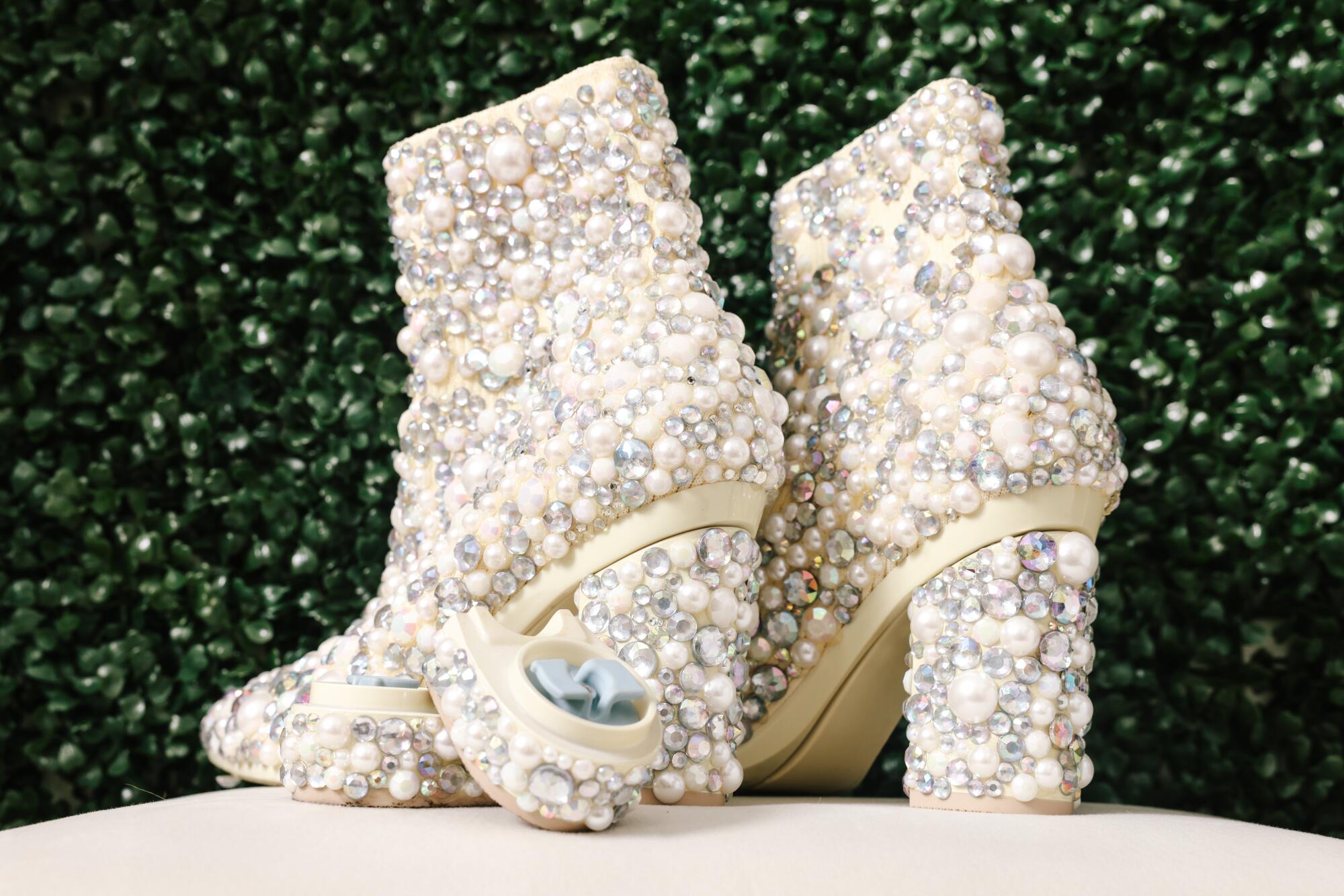
The next step, she said, is to get Pashion into a retail store and let people try on the shoes before buying them. “We are a shoe that comes with instructions, and if you think about it, that’s kind of crazy,” Pavone said.
Pavone doesn’t see her shoe as a niche product in the high-heel market — she believes it’s a new, untouched category of convertible shoes made for every occasion.
“Why can’t you have style and comfort without sacrifice? Why does one mean the absence of the other?” she asked. “We are the first company to say you can have both.”
More to Read
Sign up for Essential California
The most important California stories and recommendations in your inbox every morning.
You may occasionally receive promotional content from the Los Angeles Times.














